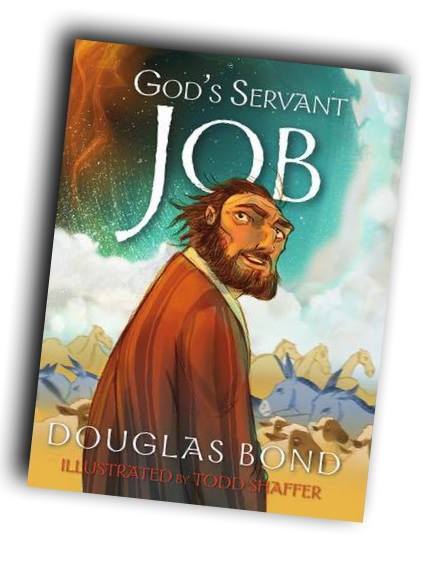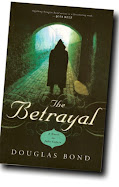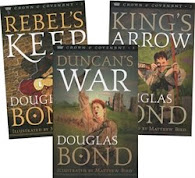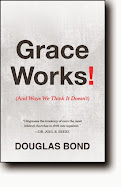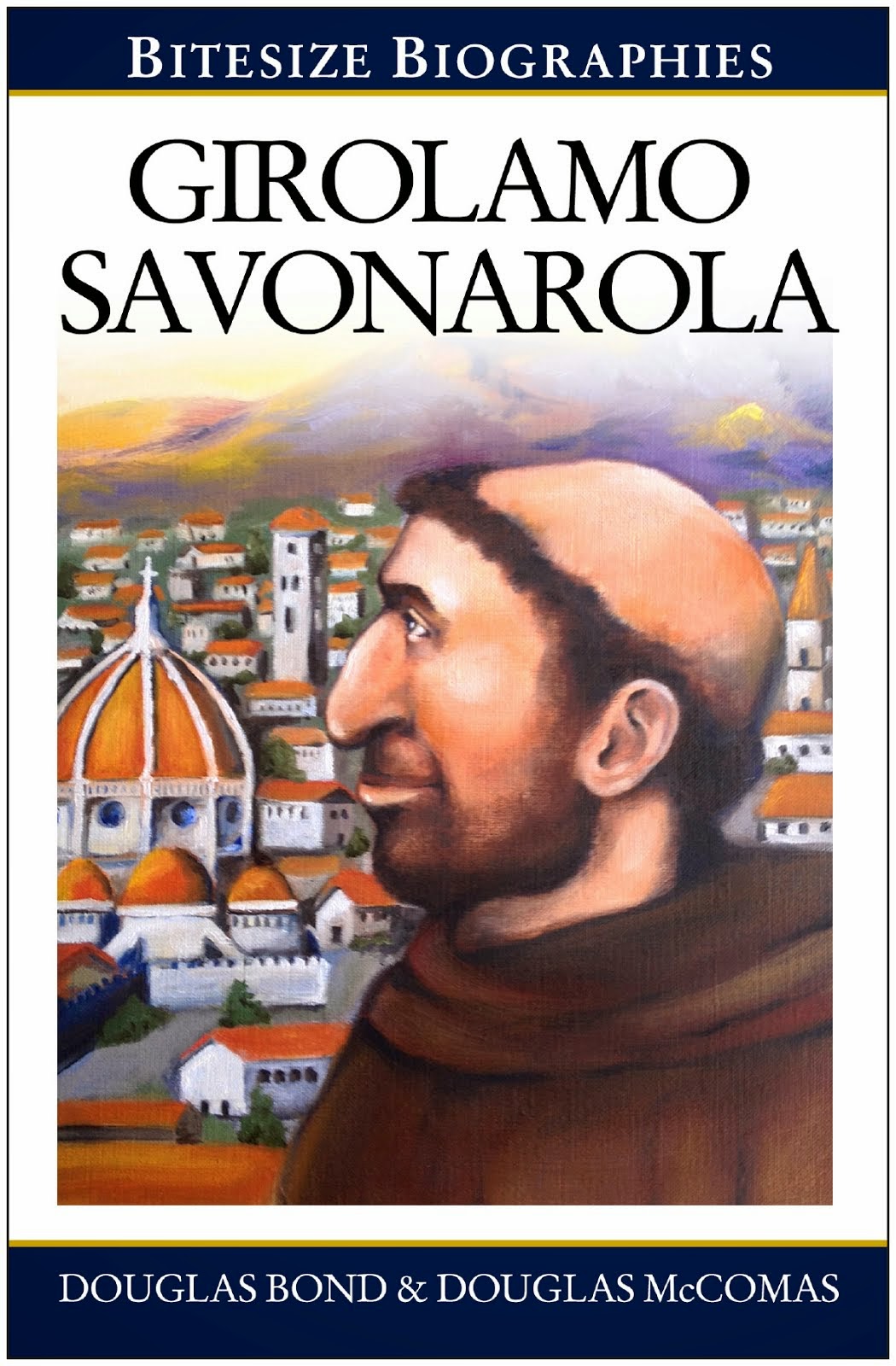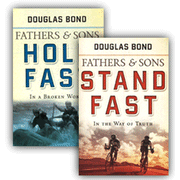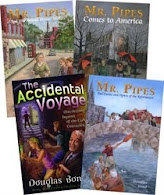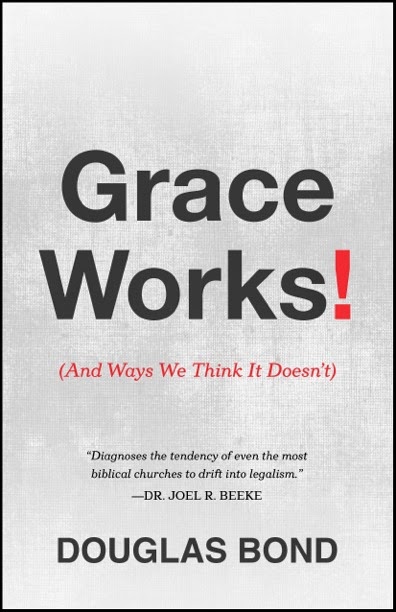 |
| Wilde McComas contemplating using his stick on me at 'Blots |
Doug Mac reads the rewrite of his Return to Tarawa , WWII Pacific Theater historical fiction. Doug told us that after working together on Savonarola biography (EP) he realized he needed to do some pretty substantial recasting and rewriting of this manuscript (Writers’ Edge liked this manuscript and judged it with “publishable potential,” a distinction given to only 3% of submissions, but rejected by P&R… so far. Much improved to my ear. Though the comment about the 1st Pres cathedral-like architecture adding to his budding faith, I found confusing. He doesn’t sound like faith is doing much budding. More like wilting. So it seemed confusing, based on how you have developed his character. I feel like his self-talk ought to reflect more of the double state of mind he seems to be in. Don’t change anything yet, but reread and consider casting him in the more realistic light of a church kid who sometimes wants to want to go to church and enter in to the whole of the life of a Christian, but then show more contrast between the dark side of his fascination with the female, sex, movies—the world and his desire to indulge his fleshly appetites. Make him be tortured by his flesh more, more torn by wanting to be in the world. But then play up the reality for a teen who grows up in the church—they’re Pharisees and are thinking about what might happen if they don’t go to church, or if they break the Sabbath; show his performance-based mentality. Every teen who grows up in the church has this war. So should your protagonist.
David commented that D Mac should minimize attributions that don’t need to be there. My thought on that, “the best attribution is no attribution at all, say some,” but I don’t absolutely agree. They can and ought to be used for cadence and pause.
Andy wanted D Mac to not tell him how to think about things, but to use more connotation, more subtlety. I wonder if the father is guiding his son in a gospel oriented manner. It sounds to me more like he wants external conformity from his son, like most of us can fall into. What is your objective for writing this? How are you going to resolve this? How is this a critical stage in the rising confrontation and final resolution? The father wants his son to keep the Sabbath, to know the will of the Lord, but there is such a relentless tendency in every generation to prefer legalism (so tidy) over grace (so messy). Unless this is a story about the need for a father to lead his son past the means of grace to the Object of grace, Jesus Christ himself (it makes sense for there to be significant needs both the father and the son have here: both need to reembrace the gospel, look to Jesus the author and perfecter of faith) The father should want his son to believe the gospel, to see the stupendous wonder of Christ and his cross and righteousness. Granted, this is difficult and most often done in a cheesy fashion that diminishes the very thing we want to accomplish, or should want to accomplish. Nevertheless, there are real and reoccurring challenges for kids who grow up in Christian homes. Miss this, fail to confront this, or ignore it, or fail to get down to the genuine issue at stake for a teen who is wondering whether it is all true, and maybe wondering what it actually is, and you relegate your writing to irrelevance. None of us wants to write material that doesn't actually get down to the heart of conflict, and the heart of conflict is always at its root conflict between our proud hearts and the gospel. We and our kids are hell bent on not making the main thing the main thing. Show us this. Make it real, the conflict, and then you can resolve it in the only way conflict can be resolved.
Incidently, our critiques at 'Blots are not just about semi colon use, or attributions, or style, or getting certain facts correct; I think the strength of 'Blots is that we can critique the whole story, get down to the heart of our characters, keep the main thing the main thing in our writing.
John read his charming French Cousins tale, written so warmly for his grandchildren. This is a great illustration of how audience effects our voice in our writing. I can hear and feel John writing this with love for his dear grandchildren who live thousands of miles apart on differenct continents. Great improvement on bringing the kids' voices into the story in dialog. keep writing on this project. Great potential for a wide audience.
Next I read from the opening of a new nonfiction book proposal I have made to both P&R and Ligonier, with interest from both. It opens on my visit to Amsterdam in 2007 and a disturbing unplanned encounter that set me trying to sort out why there is the historical undulation in the church. D Mac thought I should return to the recent growth and progress of the gospel in Uganda, a good idea I might save for the end of the last chapter, inclusio fashion. A few criticisms of using cliches. Gag me with a spoon! Me use cliches? I'd rather drop dead, slip on a banana peel, fall off a log than stoop to using cliches.
Tom read an autobiographical fiction piece he is working on--out of the furnace. John said the opening description of his pre-Christian affair with a woman made him uncomfortable. Tom pushed back (we all do this at times, don't we). I suggested Tom read the Bible's accounts of immorality and follow the divine author's lead on how we portray evil. I also suggested Tom read Samuel Johnson's Rambler 4: "Evil must never be portrayed promiscuously but must always disgust + -" D Mac thought it might help Tom to read Flannery O'Conner's Good Country People (discussed in previous 'Blots) where she has a seduction scene that never crosses the line into being titillating, never woos a reader into longing for the sin.
Dave wrapped up with a reading of the rewrite of chapter one on a new assassin thriller he is engaged in writing. We had previously felt there needed to be more human quality to the protagonist and first person point of view in the tale.
Incidently, our critiques at 'Blots are not just about semi colon use, or attributions, or style, or getting certain facts correct; I think the strength of 'Blots is that we can critique the whole story, get down to the heart of our characters, keep the main thing the main thing in our writing.
John read his charming French Cousins tale, written so warmly for his grandchildren. This is a great illustration of how audience effects our voice in our writing. I can hear and feel John writing this with love for his dear grandchildren who live thousands of miles apart on differenct continents. Great improvement on bringing the kids' voices into the story in dialog. keep writing on this project. Great potential for a wide audience.
Next I read from the opening of a new nonfiction book proposal I have made to both P&R and Ligonier, with interest from both. It opens on my visit to Amsterdam in 2007 and a disturbing unplanned encounter that set me trying to sort out why there is the historical undulation in the church. D Mac thought I should return to the recent growth and progress of the gospel in Uganda, a good idea I might save for the end of the last chapter, inclusio fashion. A few criticisms of using cliches. Gag me with a spoon! Me use cliches? I'd rather drop dead, slip on a banana peel, fall off a log than stoop to using cliches.
Tom read an autobiographical fiction piece he is working on--out of the furnace. John said the opening description of his pre-Christian affair with a woman made him uncomfortable. Tom pushed back (we all do this at times, don't we). I suggested Tom read the Bible's accounts of immorality and follow the divine author's lead on how we portray evil. I also suggested Tom read Samuel Johnson's Rambler 4: "Evil must never be portrayed promiscuously but must always disgust + -" D Mac thought it might help Tom to read Flannery O'Conner's Good Country People (discussed in previous 'Blots) where she has a seduction scene that never crosses the line into being titillating, never woos a reader into longing for the sin.
Dave wrapped up with a reading of the rewrite of chapter one on a new assassin thriller he is engaged in writing. We had previously felt there needed to be more human quality to the protagonist and first person point of view in the tale.







